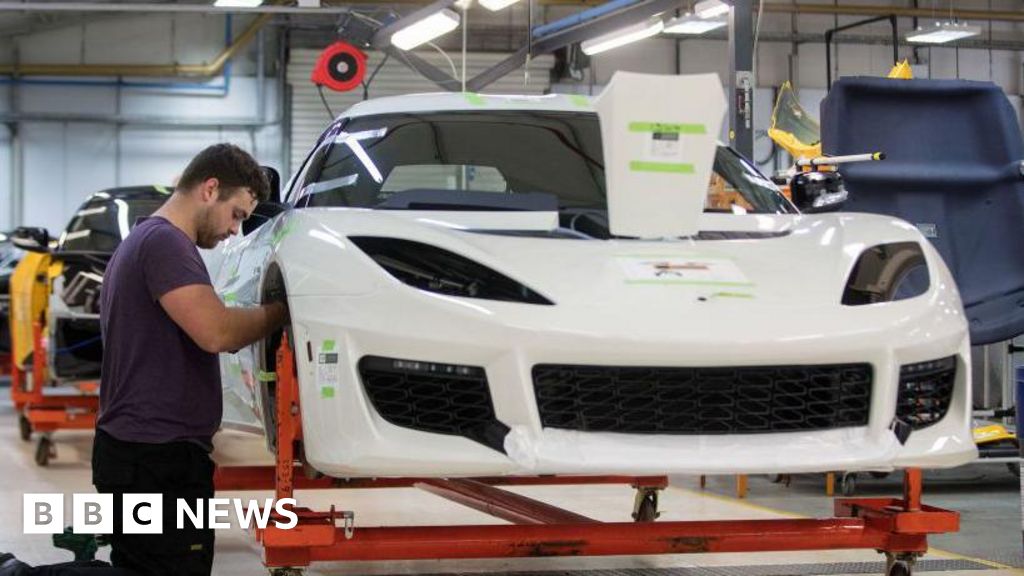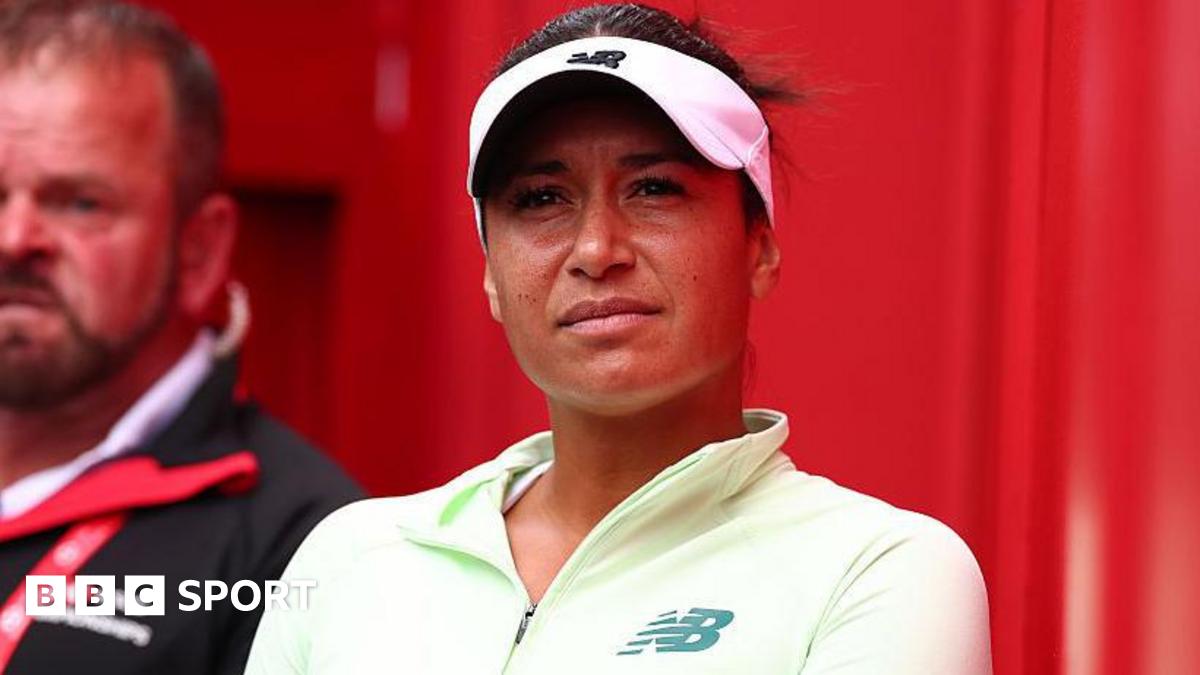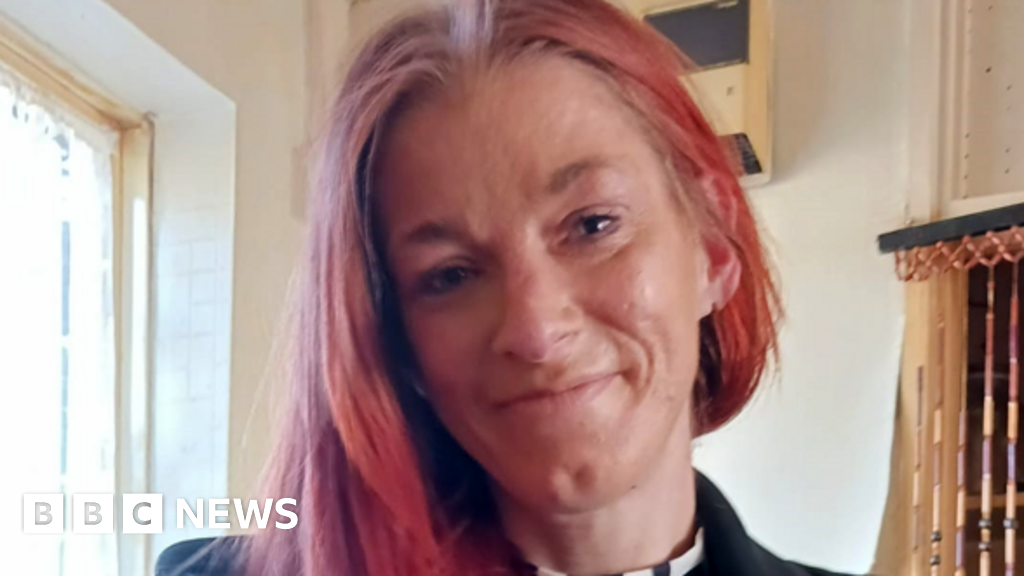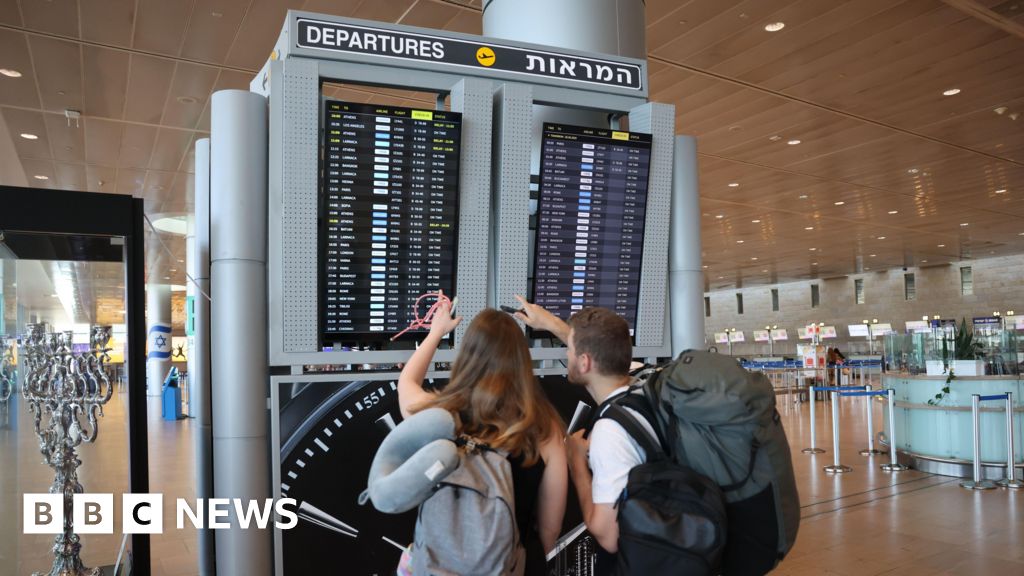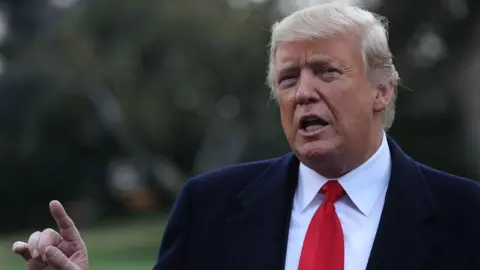 Getty Images
Getty ImagesThe Supreme Court allowed Donald Trump's executive order to end birthright citizenship to go into effect
The Supreme Court on Friday handed a significant victory to Donald Trump - and future American presidents - when curbing lower courts' power to block executive orders.
President Trump was beaming as he addressed reporters at the White House briefing room podium, calling it a "big, amazing decision" which the administration is "very happy about".
He said it was a "monumental victory for the constitution, the separation of powers and the rule of law".
The court's decision not only impacts Trump's birthright citizenship order, but also emboldens him to enact many of his other policy actions that have been temporarily thwarted by similar injunctions.
Impact on birthright citizenship
The Supreme Court has opened the door for the Trump administration to no longer grant automatic citizenship to everyone born on American soil – at least for the moment. Now the White House will have to implement its plan, which will be no easy task.
On Friday, the nation's highest court allowed Donald Trump's executive order to end birthright citizenship to go into effect in a month's time, while leaving room for lower courts to curb the impact on those who have standing to sue.
States traditionally handle processing birth certificates, and many do not record the citizenship of the parents. Democratic-run state governments will be in no rush to do so, no matter what the Trump administration may desire.
And Justice Amy Coney Barrett, writing for the majority, left the door open for states to make the case that a more broad block on Trump's birthright citizenship action is necessary.
That sets up big legal battles to come.
"As the States see it, their harms — financial injuries and the administrative burdens flowing from citizen-dependent benefits programs — cannot be remedied without a blanket ban on the enforcement of the Executive Order," Barrett wrote.
"The lower courts should determine whether a narrower injunction is appropriate, so we leave it to them to consider these and any related arguments."
President Trump described the court's decision on Friday as a "giant win".
He added that the "birthright citizenship hoax" has been "indirectly, hit hard" and that the decision would prevent "scamming of our immigration process".
Trump's Attorney General Pam Bondi said on Friday that the Supreme Court will decide whether the US will end birthright citizenship in October during its next session.
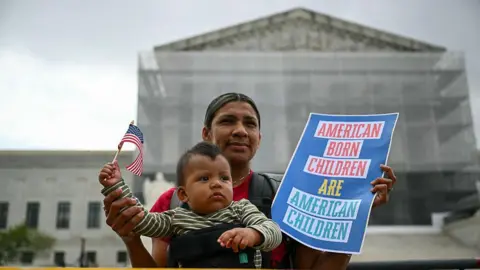 Getty Images
Getty ImagesOlga Urbina and her infant son Ares Webster participate in a protest outside the US Supreme Court over President Donald Trump's move to end birthright citizenship
Broadening presidential power
The court's decision to limit the power of lower court federal judges to issue nationwide injunctions will have immediate, wide-ranging consequences.
Both Democratic and Republican presidents have often criticised what they say are ideological jurists in federal district courts who have been able to singlehandedly block executive actions and even legislation passed by Congress.
While doing away automatic citizenship for the children of undocumented migrants born on US soil is at the centre of this high profile case, there are a number of other actions taken by Trump in recent months that have also been held up by lower-level judges.
From Trump's inauguration to April 29, the Congressional Research Service counts 25 such instances.
Following the court's decision on Friday, Trump told journalists, "We can now properly file to proceed with policies that have been wrongly enjoined."
Lower courts have blocked the president's cuts to foreign assistance, diversity programmes and other government agencies, limited his ability to terminate government employees, put other immigration reforms on hold and suspended White House issued changes to election processes.
With the Supreme Court's decision in this case, the administration is in a much stronger position to ask courts to allow it to push forward on many of these efforts.
During the Biden presidency, conservative judges prevented Democrats from enacting new environmental regulations, offering student loan forgiveness, modifying immigration rules. Courts blocked changes to normalised immigration status for some undocumented migrants during Barack Obama's presidency, as well, and prevented him from making more white collar employees eligible for overtime pay.
In all these types of cases, courts will ultimately be able to step in and halt presidential actions that they deem illegal or unconstitutional.
The Supreme Court in its opinion said, " The lower courts shall move expeditiously to ensure that, with respect to each plaintiff, the injunctions comport with this rule and otherwise comply with principles of equity."
But that will come further along in the judicial process, at the appellate and Supreme Court level. In the meantime, presidents – Donald Trump and his successors, whether they are Republicans or Democrats - will have more time and space to act.





